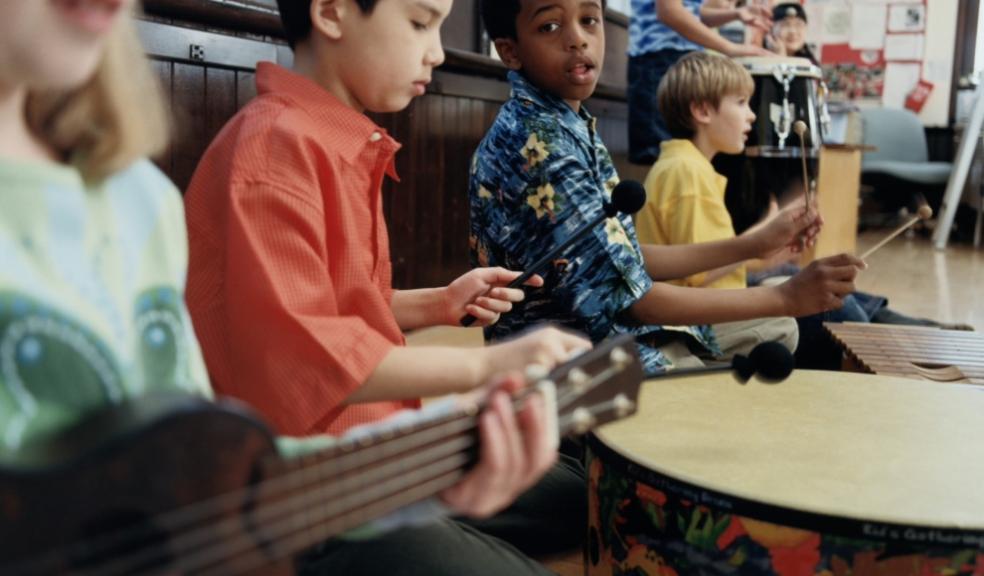
Chroma delivers Arts Therapies at Pathfield School
Pathfield School, a special school in North Devon, recently decided to partner with Chroma, the UK’s leading provider of arts therapies. Building upon the success of the existing music therapy provision within the school, Pathfield’s new partnership with Chroma has seen the commissioning of a full arts therapies team.
The new Arts Therapies Service consists of an in-house team of Chroma arts therapists - including a neurologic music therapist, art therapist and drama therapist. Arts therapists play a valuable role in the school, addressing pupils’ emotional and social needs that can be a barrier to learning - and which cannot be fully addressed in the classroom context.
Each therapist has a different role, but overall the team help children and young people to express and explore a wide range of emotions, thoughts, relationships and experiences for which it is difficult, or not possible, to communicate in words.
Many children have difficulty communicating verbally or articulating their thoughts and feelings effectively and this is where arts therapists can help them gain better insight into their conditions, and express, explore and better manage their emotions- allowing them the opportunity to process their emotions and experiences through an effective means.
Arts therapies utilise different techniques to enable children to work towards achieving identified aims within the safety of a therapy context. For example, dramatherapy might involve a range of techniques and materials, such as small world play, role play and props. Similarly, music therapy can involve improvised play on instruments or songwriting, and art therapy may involve image-making or working with clay. Children are naturally drawn to the arts and these can provide them with the voice they may need.
Pathfield recently expanded to include the Pathways Discovery Centre - a new centre created to meet the specific needs of children with more complex social, emotional and mental health barriers to education. Much of the art therapy work is based at the centre, though can also be accessed by pupils on the main site. Pupils who take part in these sessions tend to be more cognitively aware and able to work through this means.
Arts therapies sessions tend to be delivered in an individual therapy context, but the Chroma team look to develop more group work in the future to support pupils with peer interactions, build confidence and further develop their communication skills.
The new service also sees the introduction of neurologic music therapy techniques for those pupils receiving music therapy with a brain injury or neurological condition - to help them regain or attain functional skills that will help them overcome significant challenges and barriers to learning.
Using standardised specialist assessments, Chroma arts therapists assess, monitor and evaluate children’s functioning in different domains as well as progress and outcomes. This sees the therapists working closely with parents, carers and class teaching teams to identify aims for the work and support the child in achieving positive outcomes.
Arts therapists form an integral part of the multidisciplinary team (MDT) in order to help the children to achieve their goals - this requires close liaison with other professionals - namely, educational and clinical psychologists, social workers, physiotherapists, occupational therapists, and speech and language therapists.
Drawing on other professionals’ expertise in specific areas is an important part of the work and the work by Chroma therapists further enhances the input provided by the other members of the MDT. Together, in partnership with parents, carers and teachers, the Chroma team make valuable contributions to a child’s Education and Health Care Plan (EHCP) and discuss their needs and progress in reviews.













